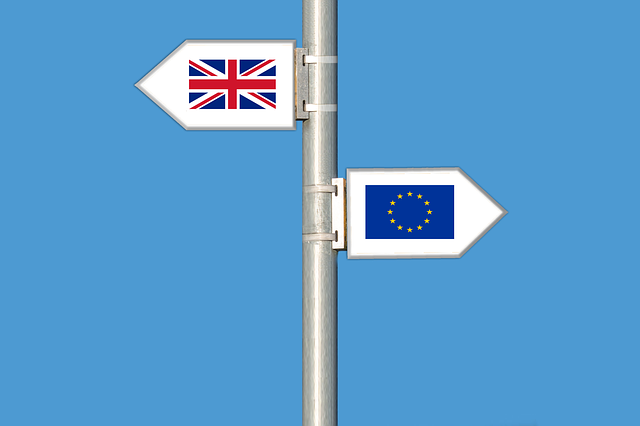Uncertainty continues to hang over Brexit more than three years after the UK cast its vote on leaving European Union – a situation Amnesty International says “poses serious human rights issues.”
The advocacy group says it has identified five key human rights concerns, and is calling on the government to make a statement on how it will address these.
This includes a potential shortage of access to food and medicine, as well as concerns over the future of EU citizens in the UK, the right to immigration and asylum, and the future of the Good Friday Agreement in Northern Ireland.
“Deal or no deal, Brexit poses serious human rights concerns to UK residents,” said Kate Allen, Amnesty’s UK Director. “The government and politicians of all parties must do everything they can to ensure that the human rights of those living in the UK are protected and respected, not degraded or undermined.”
It comes after fellow civil rights group Liberty announced on Monday (9 September) that it is taking legal action against PM Boris Johnson, amid fears he will try to flout a law passed by Parliament which blocks a no-deal Brexit.
Amnesty, which does not take a position on the result of the referendum, is demanding the government take these five steps to safeguard human rights in the event of Britain leaving the EU:
Northern Ireland
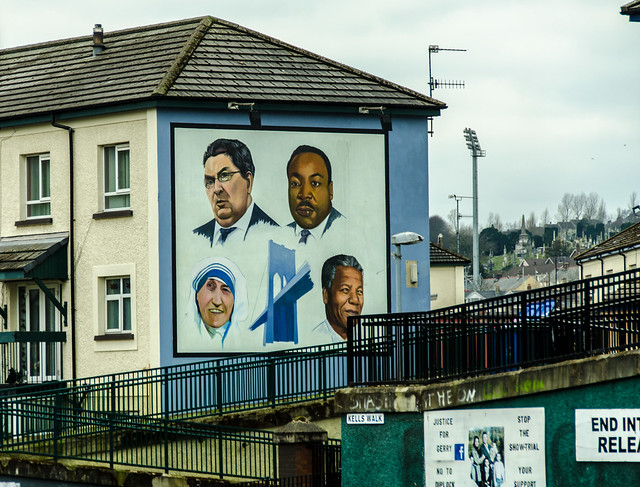
A mural in Derry, Northern Ireland. Image Credit: Philip Master / Flickr.
As a co-signatory to the Good Friday Agreement, the Westminster government must ensure it fully safeguards the vital human rights protections which it helps guarantee. This must include protection of the equal rights of all citizens, whether they identify as Irish or British.
It is imperative there are no restrictions on the freedom of movement to and from Northern Ireland, so as to enable people to fully exercise their rights to education, healthcare, work and family life.
EU Citizens In The UK
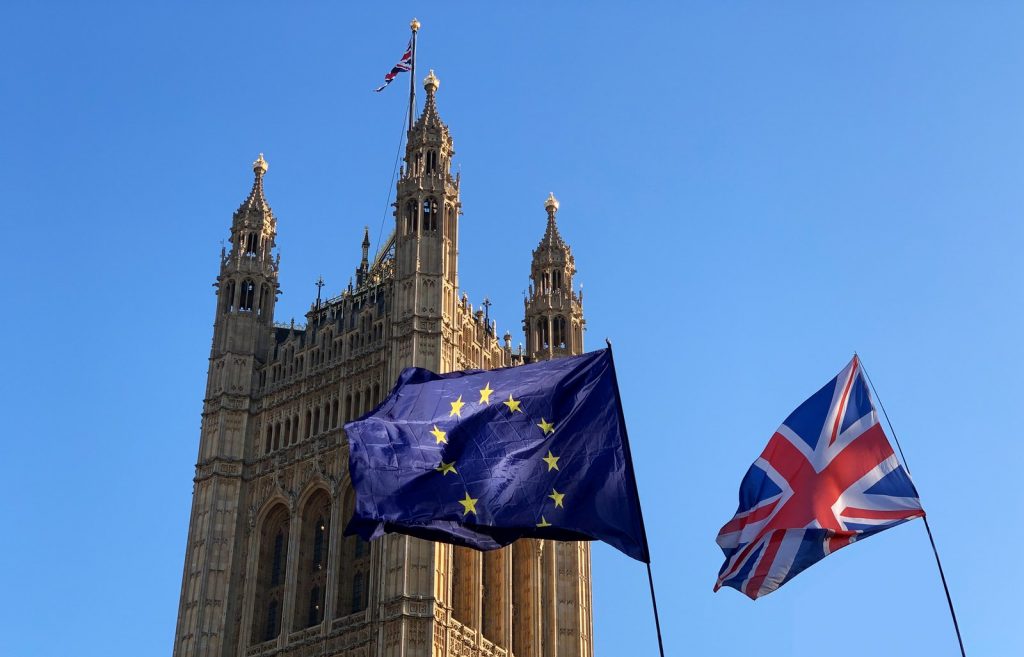
Image Credit: Christoph Scholz / Flickr.
The government must act to ensure the rights of EU citizens and their family members in the UK are protected and respected, and take steps to secure the same rights for the one-million plus UK citizens who live in the EU.
In doing so, the government must ensure children of EU citizens are not deprived of their rights by being treated as subject to immigration powers (under the Government’s EU Settlement Scheme) in circumstances where those children are, or have rights to register as, British citizens.
Access To Food
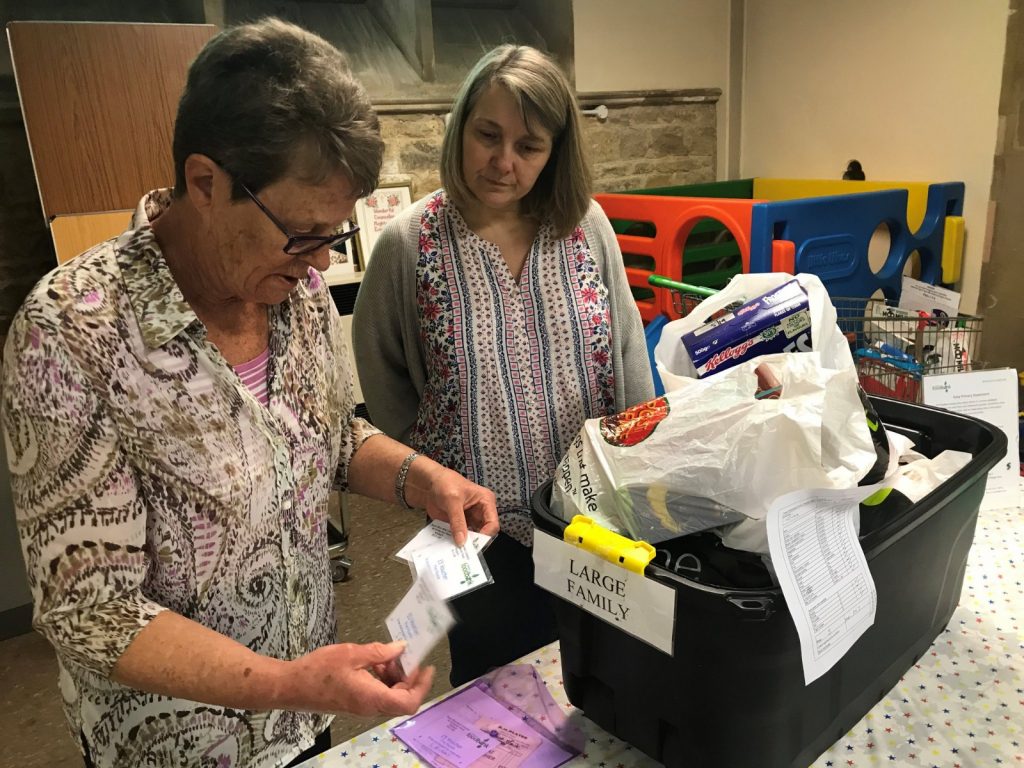
Image Credit: Kartik Raj/Human Rights Watch. Volunteers at the Wisbech food bank, Cambridgeshire make up an emergency parcel suitable for a large family.
It is vital that the government does all it can to ensure food supplies aren’t disrupted as the UK leaves the EU, and that everybody has access to adequate and affordable levels of food – regardless of their circumstances. We are already witnessing an increasing reliance on food banks in the UK and all efforts must be made to provide food security to all, including those already in vulnerable situations.
Access To Medicine
![]()
Image Credit: Pxhere.
There must be no disruption to supplies of medicines, which are crucial to ensuring that everybody enjoys their right to health. The government must therefore take all necessary measures to overcome any obstacles to guarantee access to good quality and affordable medicine, in a timely fashion.
Immigration And Asylum System
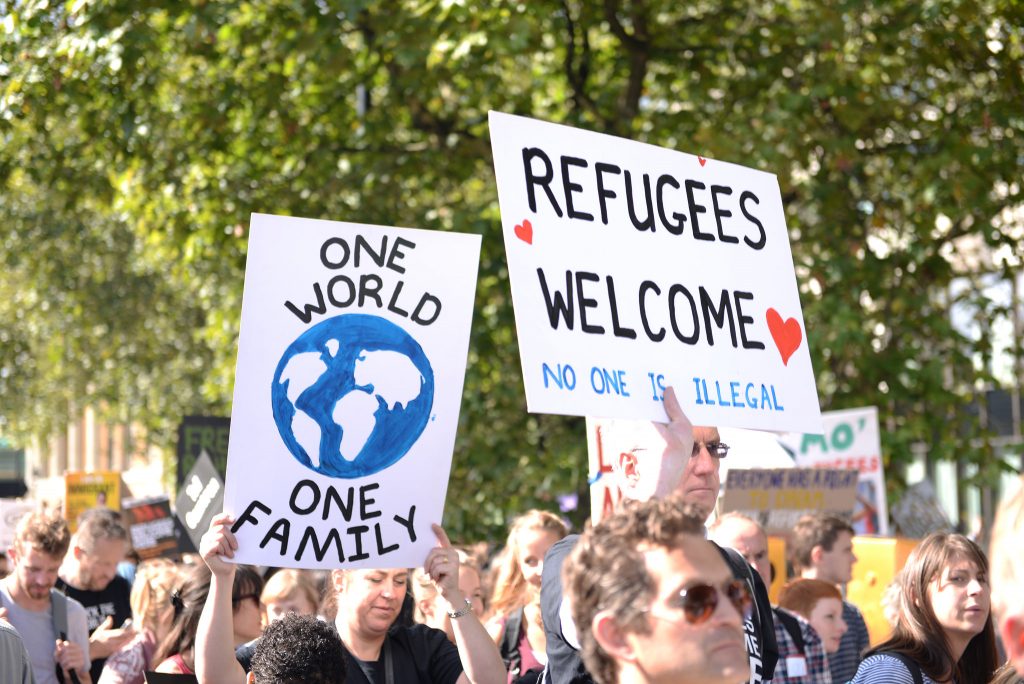
Image Credit: Ilias Bartolini / Flickr.
As the government seeks to revise the immigration system in the wake of ending EU free movement, it must ensure that any reforms promote and respect the rights to asylum, family and private life, and the best interests of children, whilst protecting people against wrongful and excessive use of immigration powers by the state, or exploitation by third parties.
Want to know more? Why not read:
- Our news report on Liberty threatening legal action if PM Boris Johnson flouts Parliament’s no-deal law
- Our interactive explainer on how Brexit could affect human rights

